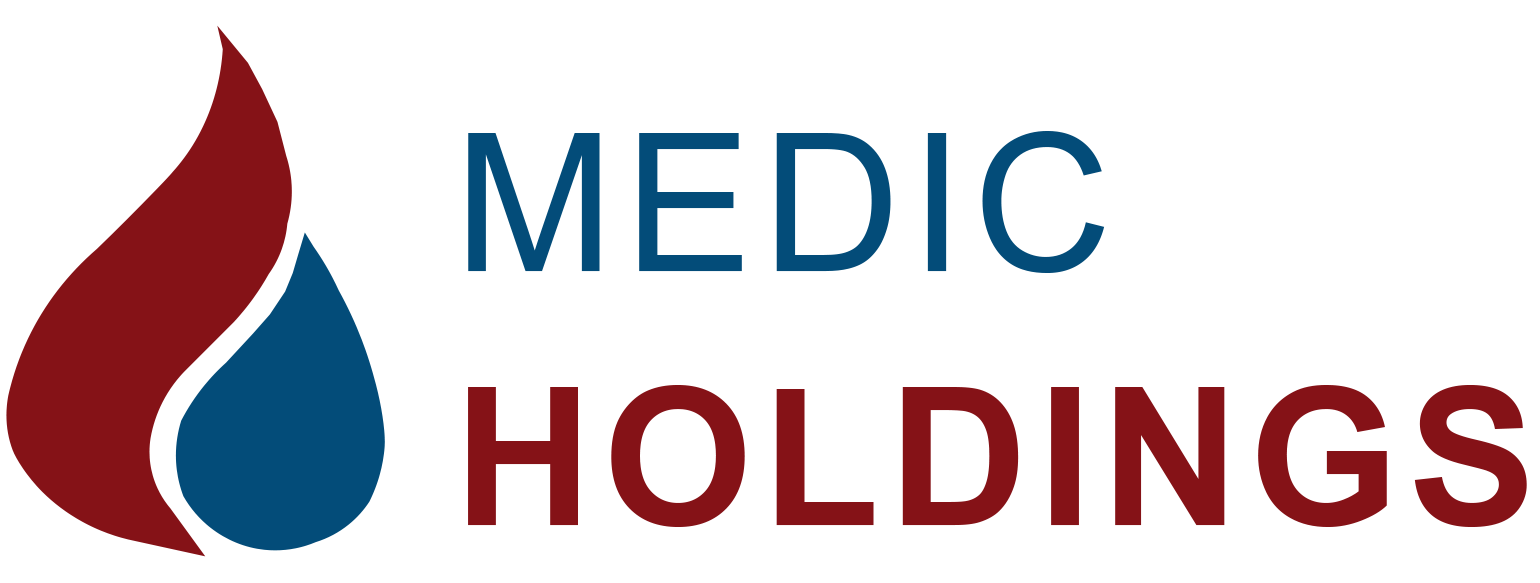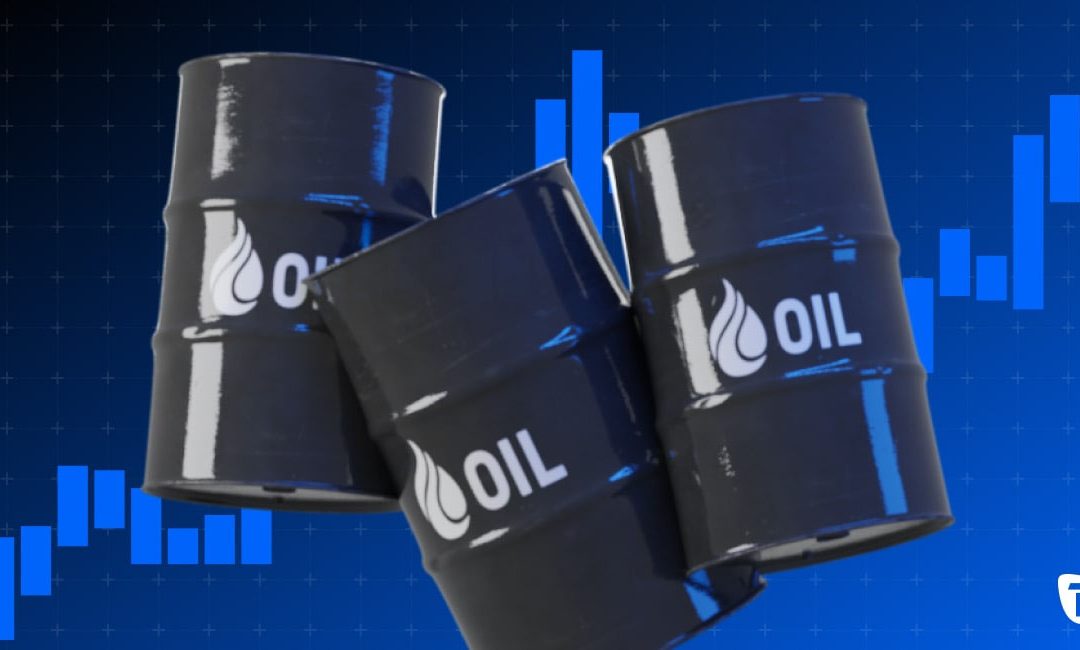Medic Holdings Limited, a leading bulk petroleum marketing company in East Africa, is making a bold strategic move to establish a stronger presence in the global energy market through its Dubai-based trading arm, Meedek PTL FZE. This expansion is not merely about geographic growth—it represents a calculated shift to position Medic Holdings as a dominant force in petroleum and commodity trading across Africa and beyond.
With its headquarters in Uganda and a robust distribution network across East Africa, Medic Holdings has built a reputation for reliability, efficiency, and adherence to the highest Health, Safety, Security, and Environmental (HSSE) standards. Now, by leveraging Dubai’s status as a global trading hub, the company aims to enhance its supply chain, secure better financing options, and establish stronger partnerships with international oil traders, refiners, and commodity brokers.
This article explores:
- Why Dubai? – The strategic advantages of establishing a trading hub in the UAE.
- The Role of Meedek PTL FZE – How this subsidiary will drive growth.
- Impact on African Markets – Strengthening supply chains and reducing dependency on intermediaries.
- Competitive Edge – How Medic Holdings’ existing infrastructure and ethics-driven approach will support this expansion.
- Future Outlook – Long-term ambitions in the global energy trade.
-
Why Dubai? The Strategic Advantages
A Global Trading Hub
Dubai has long been a critical node in the global energy trade, thanks to its:
- Free Zone Benefits: Companies like Meedek PTL FZE enjoy 100% foreign ownership, tax exemptions, and streamlined business setup processes.
- Proximity to Key Markets: Dubai serves as a bridge between African, Asian, and European markets, facilitating faster and more cost-effective trade.
- Access to Financing: The UAE’s robust banking sector provides better trade financing and credit facilities crucial for large-scale commodity trading.
Enhanced Supply Chain Efficiency
By operating in Dubai, Medic Holdings can:
- Source Directly from Refineries: Cutting out middlemen reduces costs and ensures more competitive pricing for African markets.
- Leverage Jebel Ali Port: One of the world’s largest and most efficient ports allows for smoother logistics and storage solutions.
- Mitigate Currency and Payment Risks: Trading in USD through Dubai minimizes forex volatility risks common in African markets.
Regulatory and Political Stability
Unlike some African jurisdictions where policy shifts can disrupt trade, Dubai offers:
- Stable regulations favorable to commodity traders.
- Strong legal frameworks for contract enforcement and dispute resolution.
- Networking opportunities with global oil majors, trading houses, and shipping firms.
-
The Role of Meedek PTL FZE in Medic Holdings’ Expansion
A Dedicated Trading Arm
Meedek PTL FZE is not just an offshore entity—it is the engine driving Medic Holdings’ ambitions to become a pan-African energy trading powerhouse. Its functions include:
- Global Procurement: Securing contracts directly with suppliers in the Middle East, Europe, and Asia.
- Risk Management: Hedging against oil price fluctuations through futures and derivatives trading.
- Strategic Partnerships: Collaborating with international traders to ensure consistent supply even during market disruptions.
Synergies with Existing Operations
Medic Holdings’ strong East African logistics network ensures that products sourced via Dubai are efficiently distributed. Key synergies include:
- Storage Infrastructure: Utilizing existing depots in Uganda and neighboring countries to minimize delays.
- Fleet Management: A well-maintained truck fleet ensures last-mile distribution remains seamless.
- HSSE Compliance: Maintaining the same high safety and environmental standards across all operations.
-
Impact on African Markets: Reducing Dependency and Improving Supply
Addressing Africa’s Energy Challenges
Many African nations face:
- Fuel shortages due to reliance on a few import channels.
- High costs from multiple intermediaries in the supply chain.
- Logistical bottlenecks leading to inefficiencies.
By trading directly through Dubai, Medic Holdings can:
✔ Improve Supply Reliability – Fewer disruptions due to diversified sourcing.
✔ Lower Costs for End Consumers – Eliminating middlemen reduces markups.
✔ Enhance Energy Security – A more resilient supply chain benefits entire economies.
Case Study: East Africa’s Growing Demand
With rising industrialization and urbanization, countries like Uganda, Kenya, Tanzania, and Rwanda are experiencing increased fuel consumption. Medic Holdings’ Dubai operations will ensure:
- Faster delivery times due to better shipping routes.
- Bulk purchasing advantages, passing savings to customers.
- Stable pricing even during global oil market volatility.
-
Competitive Edge: What Sets Medic Holdings Apart?
Ethical and Sustainable Trading
While many traders prioritize short-term profits, Medic Holdings remains committed to:
- Transparent Dealings: Adhering to strict anti-corruption and compliance policies.
- Environmental Responsibility: Investing in cleaner energy solutions and carbon reduction initiatives.
- Community Impact: Supporting local economies through job creation and fair business practices.
Existing Infrastructure and Expertise
Unlike new market entrants, Medic Holdings already has:
- Decades of regional experience in petroleum distribution.
- Strong government and private-sector relationships across East Africa.
- A safety-first culture that minimizes operational risks.
Strategic Vision
This Dubai expansion is not an isolated move—it’s part of a long-term strategy to:
- Diversify into other commodities (e.g., liquefied petroleum gas, bitumen).
- Expand into new African markets (West and Southern Africa).
- Integrate digital trading platforms for real-time market responsiveness.
-
Future Outlook: Becoming a Top-Tier African Trading Powerhouse
Medic Holdings’ Dubai venture is just the beginning. The long-term vision includes:
- Scaling Up Trading Volumes: Targeting a 20-30% annual growth in traded volumes over the next five years.
- Renewable Energy Integration: Exploring biofuels and solar energy solutions alongside traditional fuels.
- Blockchain for Supply Chain Transparency: Using technology to enhance traceability and reduce fraud.
- IPO or Strategic Partnerships: Potential public listing or joint ventures to fuel further expansion.
Conclusion: A Transformational Leap Forward
Medic Holdings’ establishment of Meedek PTL FZE in Dubai marks a pivotal moment in its journey from a regional player to a continental energy trading leader. By capitalizing on Dubai’s strategic advantages, maintaining ethical business practices, and leveraging its existing African infrastructure, the company is well-positioned to reshape fuel supply chains across the continent.
This expansion is not just about growth—it’s about securing Africa’s energy future with efficiency, reliability, and integrity. As global energy dynamics evolve, Medic Holdings is ensuring it remains at the forefront, delivering value to customers, partners, and stakeholders alike.
The future of African energy trade is here—and Medic Holdings is leading the charge.
Key Takeaways
- Dubai offers unmatched trading advantages (tax benefits, logistics, financing).
- Meedek PTL FZE will streamline procurement and reduce costs for African markets.
- Medic Holdings’ existing infrastructure ensures seamless distribution.
- Long-term vision includes commodity diversification and digital innovation.
- Ethical and sustainable practices remain central to growth.
By executing this strategy effectively, Medic Holdings is set to become a dominant force in Africa’s petroleum and commodity trading landscape.
-
Operational Framework: How the Dubai-Africa Supply Chain Works
The success of Medic Holdings’ Dubai expansion hinges on an optimized operational model that bridges Middle Eastern suppliers with African markets. Here’s how the integrated supply chain functions:
- Procurement & Contracting
- Direct Negotiations with Refineries: Meedek PTL FZE engages with ADNOC (UAE), Saudi Aramco, and Indian refiners to secure term contracts, ensuring volume stability.
- Flexible Pricing Models: Utilizing a mix of spot purchases and long-term contracts to capitalize on market lows while guaranteeing supply.
- Quality Assurance: Implementing strict pre-shipment inspections at loading ports to meet East African fuel specifications.
- Shipping & Logistics
- Vessel Chartering: Partnering with shipping giants like Maersk and Euronav for cost-effective freight rates on Aframax and Panamax tankers.
- Transshipment Hub Strategy: Using Dubai’s Jebel Ali Port as a consolidation point for shipments heading to Mombasa, Dar es Salaam, and Djibouti.
- Just-in-Time Inventory: Coordinating vessel arrivals with storage availability at African terminals to minimize demurrage costs.
- Risk Mitigation Strategies
- Currency Hedging: Locking in USD/African currency rates through forward contracts with UAE banks.
- Political Risk Insurance: Covering supply disruptions from geopolitical instability in transit regions (e.g., Red Sea security risks).
- Force Majeure Clauses: Contractual safeguards against unforeseen events like refinery outages or port closures.
-
Technology & Innovation Driving Competitive Advantage
To maintain efficiency in cross-continental trading, Medic Holdings is investing in cutting-edge solutions:
- Digital Trading Platforms
- Commodity Trading Software: Deploying platforms like Openlink or Amphora for real-time pricing, trade execution, and P&L tracking.
- Blockchain for Documentation: Using smart contracts to automate Letters of Credit (LCs) and reduce documentary fraud.
- AI-Powered Market Intelligence
- Predictive Analytics: Machine learning models analyze historical data to forecast demand spikes (e.g., seasonal agricultural fuel needs in Uganda).
- Competitor Benchmarking: AI tools monitor rival traders’ pricing to adjust bids dynamically.
- IoT in Logistics
- Smart Tank Monitoring: Sensors in storage depots alert for leaks or theft, integrating with SAP for inventory reconciliation.
- Fleet Telematics: GPS-tracked trucks optimize delivery routes, reducing fuel consumption by 15%.
-
Financial Structuring: Funding the Expansion
-
Trade Finance Instruments
- Revolving Credit Facilities: $50M line from Emirates NBD to cover LC issuances for refinery purchases.
- Prepayment Financing: Offtake agreements with African buyers provide upfront capital (e.g., NNPC’s crude-for-fuel swaps).
-
Strategic Equity Partnerships
- Minority Stake Sales: Negotiating with Dubai-based sovereign wealth funds (Mubadala) for growth capital.
- Supplier Equity Deals: Offering refining majors like Reliance a 5% stake in Meedek PTL FZE in exchange for preferential pricing.
-
African Development Bank (AfDB) Collaboration
- $30M Warehouse Receipt Financing: Using stored fuel as collateral to unlock working capital.
- Partial Risk Guarantees: AfDB backing to mitigate payment defaults from state-owned oil marketers.
-
Regulatory & Compliance Considerations
-
Cross-Border Trade Compliance
- AFRACOM Guidelines: Adhering to African Continental Free Trade Area (AfCFTA) protocols to reduce intra-African tariffs.
- UAE Anti-Money Laundering (AML) Laws: Implementing blockchain-based KYC for counterparties.
-
Environmental Regulations
- IMO 2020 Compliance: Procuring only low-sulfur (<0.5%) fuels to meet maritime standards.
- Carbon Credit Initiatives: Partnering with Verra to offset emissions from shipping.
-
Case Study: The Tanzania-Dubai Jet Fuel Corridor
Challenge: Tanzania’s aviation sector faced 30% cost inflation due to reliance on European traders.
Medic Holdings’ Solution:
- Direct Contracts: Meedek PTL FZE signed a 2-year deal with ENOC for monthly jet fuel shipments.
- Local Storage: Leveraged Medic’s Dar es Salaam tank farm as a staging hub for airlines.
- Price Stabilization: Fixed pricing model saved clients $8/barrel versus spot market volatility.
Result: 40% market share capture within 18 months, serving Air Tanzania, RwandAir, and private charters.
-
The Road Ahead: 2025-2030 Strategic Milestones
Year Key Objective 2025 Achieve 100,000 bbl/month trading volume 2026 Launch LPG trading division 2027 Expand to 3 new African markets (Nigeria, Angola, Mozambique) 2028 IPO of Meedek PTL FZE on Nasdaq Dubai 2030 30% renewable energy mix in product portfolio

